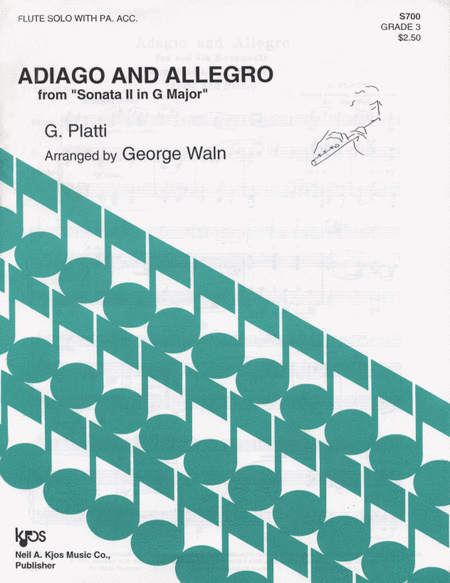Giovanni Benedetto Platti (1697 - 1763)
 Italie
Italie
 Italie
ItalieGiovanni Benedetto Platti (born possibly 9 July 1697 (according to other sources 1690, 1692, 1700) in Padua, belonging to Venice at the time; ? 11 January 1763 in Würzburg) was an Italian composer.
Platti learnt music in Italy (mostly singing, the oboe and the violin). Whilst he was still in Italy (until 1722), he also learnt to play the recently invented fortepiano and composed sonatas specially dedicated to it.
In 1722, he was called to Würzburg to work for the ... (Read all)
Source : Wikipedia
Platti learnt music in Italy (mostly singing, the oboe and the violin). Whilst he was still in Italy (until 1722), he also learnt to play the recently invented fortepiano and composed sonatas specially dedicated to it.
In 1722, he was called to Würzburg to work for the ... (Read all)
Source : Wikipedia
Intermediate Level : Grade 3-5
FREE SHEET MUSIC BAROQUE
Active criterias:
Search #Baroque
| ||||||||||













 SHEET MUSIC
SHEET MUSIC